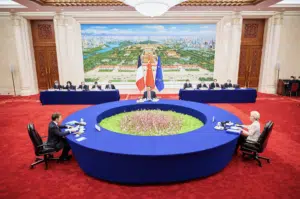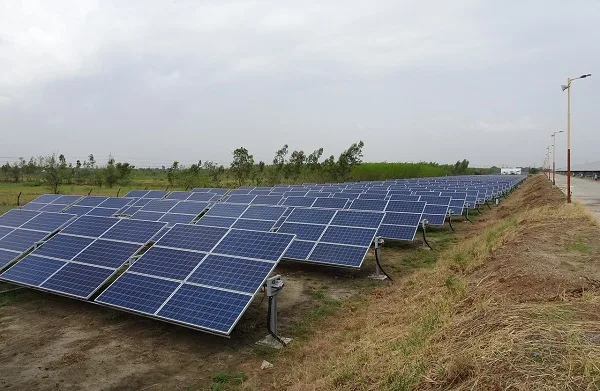Brussels – Paris, Berlin, and Brussels have started preparing for an eagerly awaited event, the outcome of which is unpredictable. On Monday (May 6), the French president, Emmanuel Macron, will host together with the number one of the EU Commission, Ursula von der Leyen, in Paris the president of China, Xi Jinping, in a re-run of the trilateral talks held in Beijing in April last year. Once again, the Chinese leader will try to leverage the differences among the 27 member countries on their approach toward Beijing -particularly France and Germany – to push their national interests, starting with the two most relevant issues on the table at the Elysée Palace: the Russian war in Ukraine and the EU investigation into state subsidies for electric vehicles.

It is no coincidence that last night (May 2), French President Macron met informally in Paris with the German chancellor, Olaf Scholz, to seek an honest discussion on their respective approaches to Beijing before the start of Xi Jinping’s European tour (which will take him to Serbia and Hungary next week). On April 16, the German Chancellor’s visit to China raised some concerns, not so much about the visit itself but the decision not to address the two thorniest issues for the 27 Member States with his Chinese counterpart. First and foremost, Brussels’ investigations into several mostly Chinese state-subsidized goods that threaten to disrupt the Union’s Single Market: in particular, electric vehicles, on which the EU Commission could impose provisional duties if it finds illegal subsidies along the value chains of battery electric vehicles in China.

The trilateral summit between European Commission President Ursula von der Leyen, the President of the People’s Republic of China, Xi Jinping, and the President of France, Emmanuel Macron, in Beijing (April 6, 2023)
It has been a year since the Macron-von der Leyen-Xi Jinping trilateral in Beijing, but the EU de-risking strategy from China seems to be just at the beginning. “We need to address solutions through dialogue and diplomacy” and focus on “a de-risking strategy, i.e. focusing on specific risks, but also appreciating the fact that the vast majority of goods and services are risk-free,” the EU Commission’s number one stressed before and during the Beijing summit, starting with the analysis on EU-China relations that has become emblematic of the approach that Brussels would like to follow: “Some trade dependencies raise significant risks. We know that for some, the consequence is to disengage from China, but I doubt this is a desirable or viable solution.” Undoubtedly, the issue of potential anti-competitive subsidies – even in the wind turbines and medical devices sectors – is seen as the factor that can create the most friction with the Chinese counterpart. At the same time, it is also the litmus test of the Union’s soundness in dealing with a trade balance that leans sharply toward Beijing.
The second red line of Monday’s discussions in Paris will undoubtedly be the issue of the Russian war in Ukraine and how the EU wants a complete stop to the supply of Chinese dual-use equipment that supports the Kremlin’s counteroffensive. A year ago, there were two peace proposals on the table – the 10-point plan of Ukrainian president Volodymyr Zelensky and the Chinese proposal greeted with great skepticism in Europe – and, above all, the two European leaders’ requests for Xi Jinping to define China’s positioning as a member of the UN Security Council: “As such, it has a great responsibility and we expect it to play an important role in promoting a just peace that respects Ukraine’s sovereignty and territorial integrity,” von der Leyen had made clear without mincing words. When a year has passed, and very little has happened diplomatically beyond the phone call between Ukrainian and Chinese leaders at the end of April 2023, the support of the 27 Member States for Kyiv will also come down to its ability to persuade Beijing to relax its indirect support to Moscow with dual-use goods, i.e., those sold for civilian purposes but convertible by the Kremlin for war use at the front.
English version by the Translation Service of Withub







